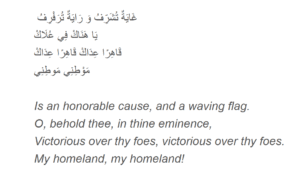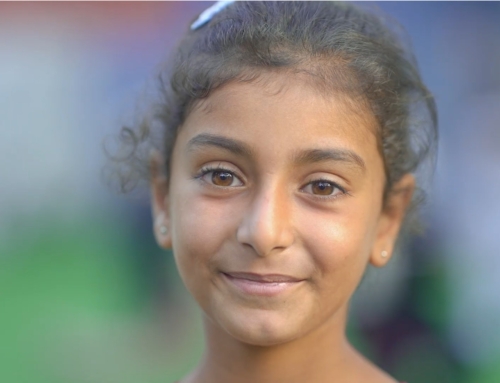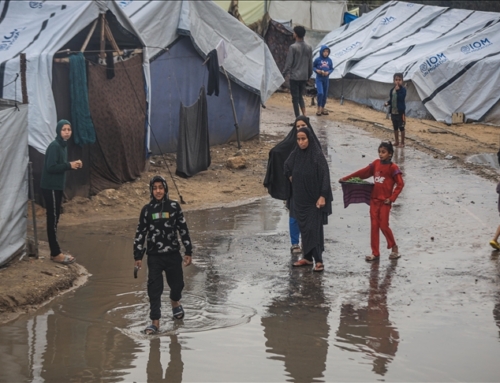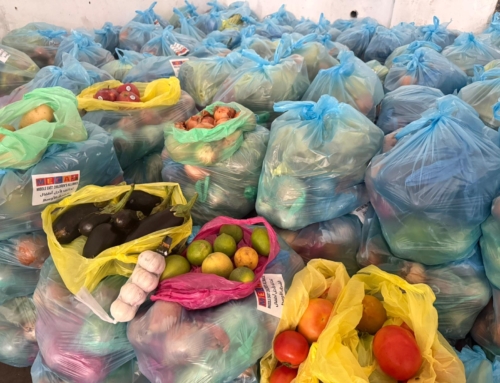From Wafaa in Gaza on the 77th anniversary of the beginning of the ongoing Nakba, the “catastrophe,” in which three-quarters of the indigenous Palestinian population was forced from their homes to create the settler-colony of Israel.
This year we don’t want to commemorate the Nakba, we want to end it. Visit shutitdown4palestine.org for a list of Nakba actions in cities across the US and Canada.
We are living here, we are staying here, we are not going anywhere
Even after 77 years of ongoing Nakba, even after 588 days of ongoing genocide, I am hopeful today. As the occupation and the media talk about our displacement, I am hopeful that our people, our children, will not leave this homeland.
I just attended a performance of children in one of MECA’s psychosocial support projects. The moment I arrived, I felt very scared because of how many people were in this one location. We ask ourselves when we are at these gatherings, who here will make it to tomorrow? But then I saw the joy pouring out of all of the children and all of these people who had come together. I felt their joy too.
Everyone living in the Gaza Strip is standing a few steps from death. I look to everyone around me, most of them children and young people, and I realize they are reclaiming hours from death. I look at these children, some without shoes or decent clothes, and every pain felt in the Gaza Strip is reflected on their faces.
These children in keffiyehs and Palestinian dresses brought us to tears as they sang Mawtini, or “My Homeland.” I could see that these children are not just saying the words, they are singing from their hearts to their homeland. In the midst of the genocide, these children who have been stripped of a childhood, their futures uncertain, remain standing and singing for Mawtini. Their homeland is burning, people and land slaughtered, destroyed, smashed, and divided, but these children are singing for Mawtini.
Everyone knows the song, but it was as if it was the first time we heard the song. These lyrics being sung proudly while the sounds of bombing and the scents of death were all around us. But still, they are singing. They are standing. After all that they have gone through in the last 19 months, all they have lost, they remain standing, they remain singing.
This song reflects 77 years of Nakba and our current realities. We are Palestinian and despite what has happened to us, we insist on the right to live free in our homeland. When I hear the song, it eases all of the pain, exhaustion, and anxiety that have stuck to me for so long. We organize these activities for children to reduce the impact of genocide and to help them heal from the trauma they are facing, to ease their pain. But in reality, the children are giving us comfort. After this event, I felt a sense of motivation and a surge of new energy.

Sometimes, in the middle of genocide, you can only think about trying to survive. You can’t think about your homeland. As soon as you have a few moments to breathe, the moment you break the routine of bombing, you can think about the meaning of homeland and freedom. We, the people of Gaza, love life. We want to live. Today, the children show us how much they love life.
This song made me realize that I am never going to leave Gaza. These songs mean a lot, this is our jannah, or paradise, our home. Yes, after 77 years of the Nakba I am still very, very hopeful that we will remain and return. These children, these songs, these words, their feelings, their hope, they uplift my spirit. I am staying. I am not going anywhere. We find the hope in the most painful of moments. Our hope today is coming from these children. They barely have food to eat, yet they are singing for their homeland, for their future, for their freedom, and for their Falasteen. Today, I am still alive.
In Gaza, we came to understand the meaning of return when we returned back to the north of Gaza just a few months ago. We know the beauty of the feeling of return and we cling to it.






